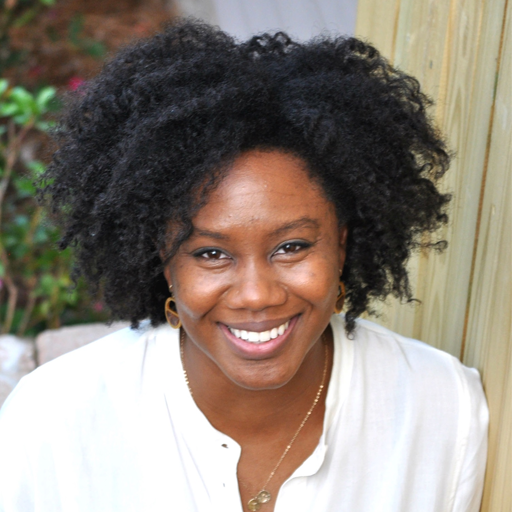Few researchers have considered the role of culture, race, and ethnicity in emotion expression. However, emotions have social meaning. One’s cultural values, as well as their understanding of cultural expectations may guide whether they express more positive or negative emotions.
How is African American Adolescents' Racial-Ethnic Identity Associated with Emotional Expression?

A recent study shows that for African American youth, aspects of their identity predict whether they are more positively or negatively expressive.
- Emotions hold cultural meaning, and when to express or not express emotions is based on cultural values and understanding.
- For African American youth, holding positive views of African Americans predicts greater expression of positive emotion.
- Greater belief that other people view African Americans in a positive light predicts less expression of negative emotion for African American youth.
Defining Emotional Expression
Expressing emotions is a basic human function that communicates our social needs, values, and expectations. Researchers have worked steadily over the years to define emotion and understand its association with the management of emotions, what is called emotion regulation. The expression of emotion is both intrapersonal (one’s own emotional experience) and interpersonal (communicating emotion experiences to others).1,2 This flow of interpersonal and intrapersonal emotion communication is maintained by the management of emotions or emotion regulation.3 Culture, race, and ethnicity likely influence these fundamental aspects of emotion. In fact, theoretical frameworks note that emotion expression and emotion regulation take place in social contexts that are shaped by one’s cultural values and understanding.4 However, few studies have examined emotion with this idea in mind and often define race and ethnic in narrow categories (e.g., White, Black, Latino). This does not take into account the important distinctions that may exist within and between cultural groups. That is, how do cultural values influence the communication of emotion?
African American Youth, Identity and Emotion
The idea of emotion expression as cultural is particularly important for adolescents. Adolescence is a unique period of development in which there is an increase in emotional response as a result of puberty, and an emerging identity development.5 Understanding this balancing act for African American youth contributes to a difference perspective of emotion expression as holding cultural meaning and values. To understand culture and emotion the study first examined the association between emotion expression and emotion regulation, an often-examined association. Secondly, the addition of racial-ethnic identity in the association between emotion expression and emotion regulation was examined. Data were analyzed from one-hundred and five African American adolescents (Mage=14.35 years, 51% female).
Intrapersonal Feelings and Positive Emotion Expression
As expected, the well-examined association between managing one’s emotions and positive emotion expression was clear. When youth reported managing their emotions by suppression or holding them inside, this predicted less expression of positive emotions. People who hold their emotions to themselves will be less expressive and this association was not expected to be different for the sample of African American youth. However, when adolescents reported that they themselves view African Americans/Blacks in a positive light and view being a member of the group positively, this predicted greater expression of positive emotion. This finding may reveal the importance of having racial-ethnic pride in oneself and community. A greater positive view of youth’s racial-ethnic community likely predicts expression of happiness and joy.
Interpersonal Understanding and Negative Emotion Expression
The same association between managing one’s emotions and negative emotion expression was present. When youth reported managing their emotions by suppression or holding them inside, this predicted less expression of negative emotions. However, when adolescents reported that they believe other people view African Americans/Blacks in a positive light this predicted less expression of negative emotion. The association between understanding one’s racial-ethnic identity through the lens of others’ and negative emotion expression may be suggestive of “masking” stereotypes and biases of African Americans. What youth believe that others’ think about their racial-ethnic group may influence less use of expressing anger, sadness, or fear.
Conclusion
The study suggests that adolescents’ racial identity adds predictive value to their expression of both positive and negative emotion and is a step toward understanding the importance of cultural frameworks within emotion science. This workmoves beyond viewing race and ethnicity as mere surface-level categories, and instead placesrace and ethnicity as important values that are salient to one’s understanding of self in the context of communicating emotions.
References
- Matsumoto D, Yoo SH, Fontaine J, et al. Mapping expressive differences around the world: The relationship between emotional display rules and individualism versus collectivism. J Cross Cult Psychol. 2008;39:55-74.
- Levenson RW. The intrapersonal functions of emotion. Cogn Emot. 1999;13:481-504.
- Aldao A, Sheppes G, Gross JJ. Emotion regulation flexibility. Cognit Ther Res. 2015;39:263-278.
- Matsumoto D, Yoo SH, Fontaine J, et al. Mapping Expressive Differences Around the World: The Relationship Between Emotional Display Rules and Individualism Versus Collectivism. J Cross Cult Psychol. 2008;39(1):55-74.
- Scottham KM, Sellers RM, Nguyên HX. A measure of racial identity in African American adolescents: The development of the multidimensional inventory of Black identity-teen. Cultur Divers Ethnic Minor Psychol. 2008;14:297-306.
Meet the Researcher
Tennisha N. Riley is an Assistant Professor in the Counseling & Educational Psychology in the School of Education at Indiana University. She received her Ph.D. in Developmental Psychology from Virginia Commonwealth University and was a postdoctoral fellow at Indiana University in the Department of Psychological and Brain Sciences and the Center for Research on Race and Ethnicity in Society.
Her research examines the sociocultural context of African American youth emotional development, adolescent risk behaviors, as well as positive youth development. She also has clinical experiences in implementing evidenced-based family interventions to address youth disruptive behaviors.


